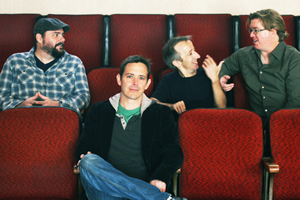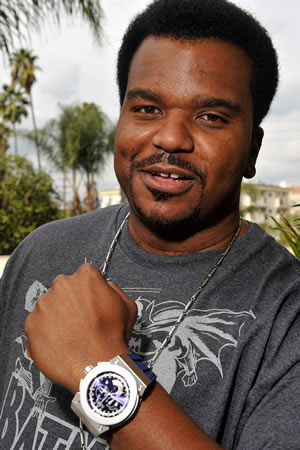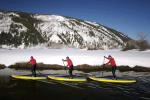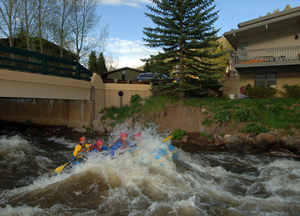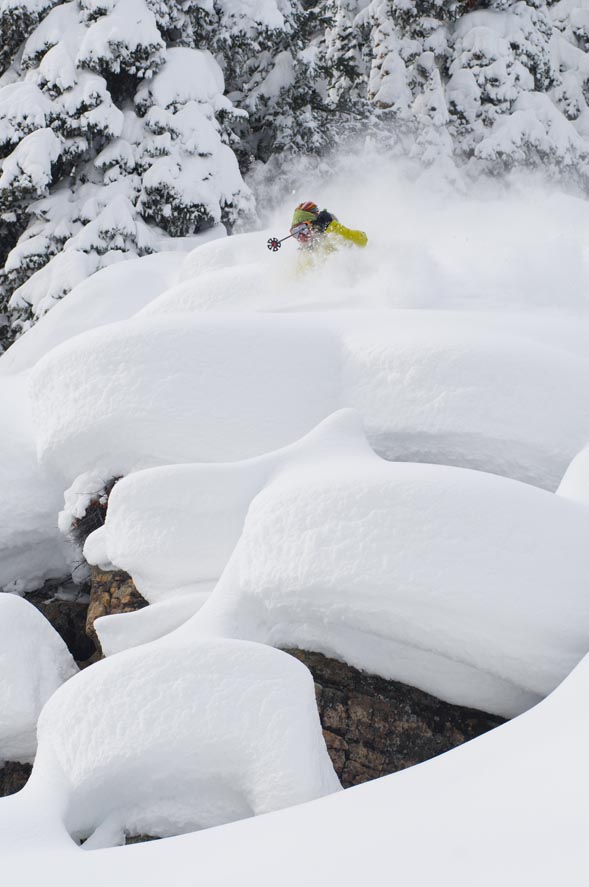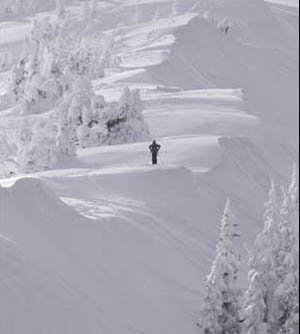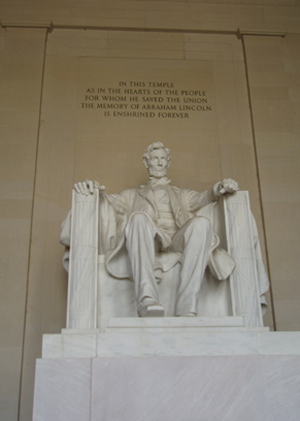
Photo by Tom Boyd
- An attempt to bring 'Colorado common sense' in Congress from Senator Michael Bennet
- A call for stories of Vail's ghosts and haunted houses
- Was it an alien ship, a UFO, or God who evaporated Air France flight 447?
- Part II: Large Hadron Collider will likely spell end to String Theory
- Part I: Don't expect CERN's Large Hadron Collider to reveal new dimensions of space and time
- Vail Mountaineer vs. Vail Daily Starbucks-gate: no wonder newspapers are dying
- Report: Hasan's moderate views catch conservative confab off-guard in D.C.
- The presidential politics of skiing: Did snow sports get the right guy?
- Happy New Year … but wait a second: scientists turn back time in 2008
- Happy trails to the valley's greatest weekly paper: The Vail Trail
- All Real Rhetoric Articles
April 22, 2008 — I just returned from Washington D.C., where anyone with a heart feels a strong sense of wonder at the history of this nation. I found Lincoln memorial particularly moving, even now on my fifth or sixth visit to that sacred place.
Slavery and the War were the big issue in Lincoln’s time, but now what is the major issue of our day? Do the lingering effects of slavery still give our nation its biggest challenge? Is the escalating war between the West and Muslim extremists the next big obstacle? What about heath care? What about climate change?
Time magazine recently released a controversial cover depicting the men of Iwo Jima raising a tree, rather than a flag, as a sign that climate change will be our nation’s next big challenge, tantamount to WWII. This irked a lot of people who figure the cover is disrespectful to the soldiers who fought and died in the Pacific.
But is climate change truly as big a hurdle as WWII?
For a score of years I’ve had many a good friend deny that the globe is warming, then that it may be warming but it’s not our fault, then that it’s warming but there’s nothing we can do about it, or that it’s a natural occurrence, or that the world’s economy will falter if we constrain large corporations within the bounds of environmental regulation.
Happily, these friends of mine no longer have firm ground to stand upon. Even stalwart Republicans have come to understand the importance of the issue, and that solutions to the issue are, by definition, economically sound.
To me, on this Earth Day, the question is no longer of the environment. It is of the economy. Environmentally sound practices dovetail so nicely with economically sound practices that the two are indistinguishable.
Americans are aware, at long last, of their planet. We are moving in the right direction, and for this reason I feel that climate change is not the biggest issue of our day. Paradoxically, I feel that much work is still to be done on that front. Our next president should help marshal a plan to increase our “green” industries on a level, to paraphrase Barack Obama, “Equivalent to the Apollo project, or the Manhattan project.”
I believe our next president, our next congress, will strike out on a bold course of action (Even the Republican John McCain shows a hint of promise in this direction, despite a historical lack of initiative on the environment from his party. The main difference is that he sees nuclear power as part of the solution.)
But Time Magazine has gone too far to compare it to WWII, a war which cost 416,800 soldiers their lives. Climate change will be difficult, but can you picture a bunch of tree huggers storming the beach at Three Mile Island, or our nation's young men dying in scores as they struggle to deposit aluminum in their community recycling bins?
The environmental movement will require a monumental effort, but certainly not sacrifice of that level.
What about racial issues? These things may not seem such a big deal in Vail, where we host the National Brotherhood of skiers each year, but there are other places where racial hatred still lives strong. Even as I was in Washington D.C. a group of Neo-Nazis staged a protest. They were surrounded by hundreds of cops in riot gear, and hundreds of anti-protesters gathered to shout them down.
Also, my roommate in college went to separate black-and-white proms. This was in Georgia, in 1993.
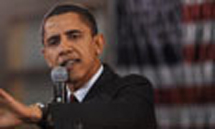
On the other hand, Barack Obama is running for office and doing well. He is currently the presidential front-runner. Even should his effort be de-railed, I think we can all agree that his presence in the forefront of this race is significant, not only because he is black, but because his multi-racial background and his ability to speak profoundly have combined to give him the ability to take on the very difficult, very elusive, issues of race during his campaign. Think what you like of Obama, his speech on race given Tuesday, March 18, is easily the most profound speech on the subject that anyone of my generation has heard first hand.
Whether he is president or not, Barack Obama has finally come to fill the gaping chasm left behind when Martin Luther King, Jr., was shot down on April 4, 1968, at the Lorraine Motel in Memphis. At the very least, there is now a rational, thoughtful human being who can act as a mediator, a fulcrum, and a leader on the issues of race.
Racial issues, in the form of slavery, were powerful enough to tear this nation apart in the 1860s, and although we are not clear of such issues, and most likely never will be, we have come far. And so it seems this issue will not, fortunately, be America’s next great challenge.
Health Care?
This issue comes much closer to requiring the sacrifice delivered in WWII, but in a very different way. Being diagnosed with a serious illness in the United States comes with the added blow of financial ruin. Hundreds of thousands are suffering, even dying, from ailments which we have the power to cure. To solve this issue America must grapple at the very core of its value system, and we must resolve our desire to take care of our citizenry with our desire to operate in a free-market society.
The issue is incredibly complex. There are a few things we must do. 1) We must look to other developed nations to find a system we can mimic. 2) We must deprive ourselves of the ability to sue our doctors (which raises the cost of malpractice insurance, and therefore raises the cost of care). 3) We must focus much more of our time and energy on preventative care, such as mandatory annual physicals (as is done in Japan). 4) We must understand that death and illness are a part of life, and no government, no matter how big and powerful, can change that.
While health care is a contender for the label of “our biggest challenge,” I feel there is one which will be greater.
Sadly, it is the coming war with Islam.
An intensive review of the history of Islam, and our relationship with it, will reveal that Islam is a peaceful, magnanimous religion – but only to its own members. Infidels receive no such respect.
So long as this basic precept remains a part of the religion, there is little chance that the general population of Muslims will be able to control its fanatic fringes. Generally speaking, the fanatics are more likely the ones who more closely follow the precepts of Islam. As the world’s largest religion, Islam needs only a very slim percentage of its population to adhere to the fanatical interpretation of the Quran in order to create a violent, long-lasting insurgency against America and the West.
No matter what happens with Iraq, we will have to deal with these radicals for a long, long, time to come. I have little doubt that this ongoing conflict will be violent, tragic, and heartbreaking. Yet it is one we must fight and we must eventually win.
My thoughts on this day began with planet Earth, her struggles, and her dangers. After much consideration, it is this battle with extremism which worry me the most.
![]() Comment on "Earth Day: Is climate change really our nation's biggest challenge?" using the form below
Comment on "Earth Day: Is climate change really our nation's biggest challenge?" using the form below



